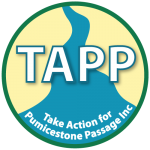Climate
Don’t Know
- Rates of changes
- Associates impactsfrom
- Rainfall
- Erosivity
- Storms
- Winds
- Associates impactsfrom
- Response / resilience of the natural environment
- Adaptability of habitat
- Adaptability of species
- Pests / weeds etc
- How existing invasives behave in a changed environment
- New and emerging invasives that adapt to new climate
- Loss of long term history and knowledge
- Lack of understanding of the connection between ecosystems – we don’t know what outcomes will be from subtle changes
- Lack of understanding of what the limits of adaptability area – eg tipping points for species and habitats
- Don’t know what extent of inundation will be
- Don’t know what role ground water plays
What we need
- Collaboration
- Education
- Knowledge sharing
- More targeted science
- Drivers for change – adaptors vs laggards
- Bring together science and Knowledge
- Move away from NIMBY attitudes
- Developers accountability / knowledge
- Ownership of impacts
- Longer memory
- Coastal saltmarsh zone mapping – to allow adaptation modelling
- Incorporate climate change as a threatening process in EPBC act
- Planning schemes to cater for sea level rise
- Take into account soil carbon
- Restorative agriculture
- Better pathways / messaging for
- Sequestration
- Rehabilitation
For landholders and local governments
- Vegetation and waters to buffer against extreme climate events
- Commitment to new technology
- Certainty of water supply
- Go beyond targets
- Buffers
- Precautionary principle
- Shoreline retreat code
- Sustainable building code
Top five things my group would like to see before 2050
- naturally occurring oyster reefs in Pumicestone passage
- viable population of dugongs and wader birds
- the whole of Bribie island as a nation park to allow for the natural processes of coastal management to to play out
- connectivity between deep ocean and the mountains
- less silt and more sand
